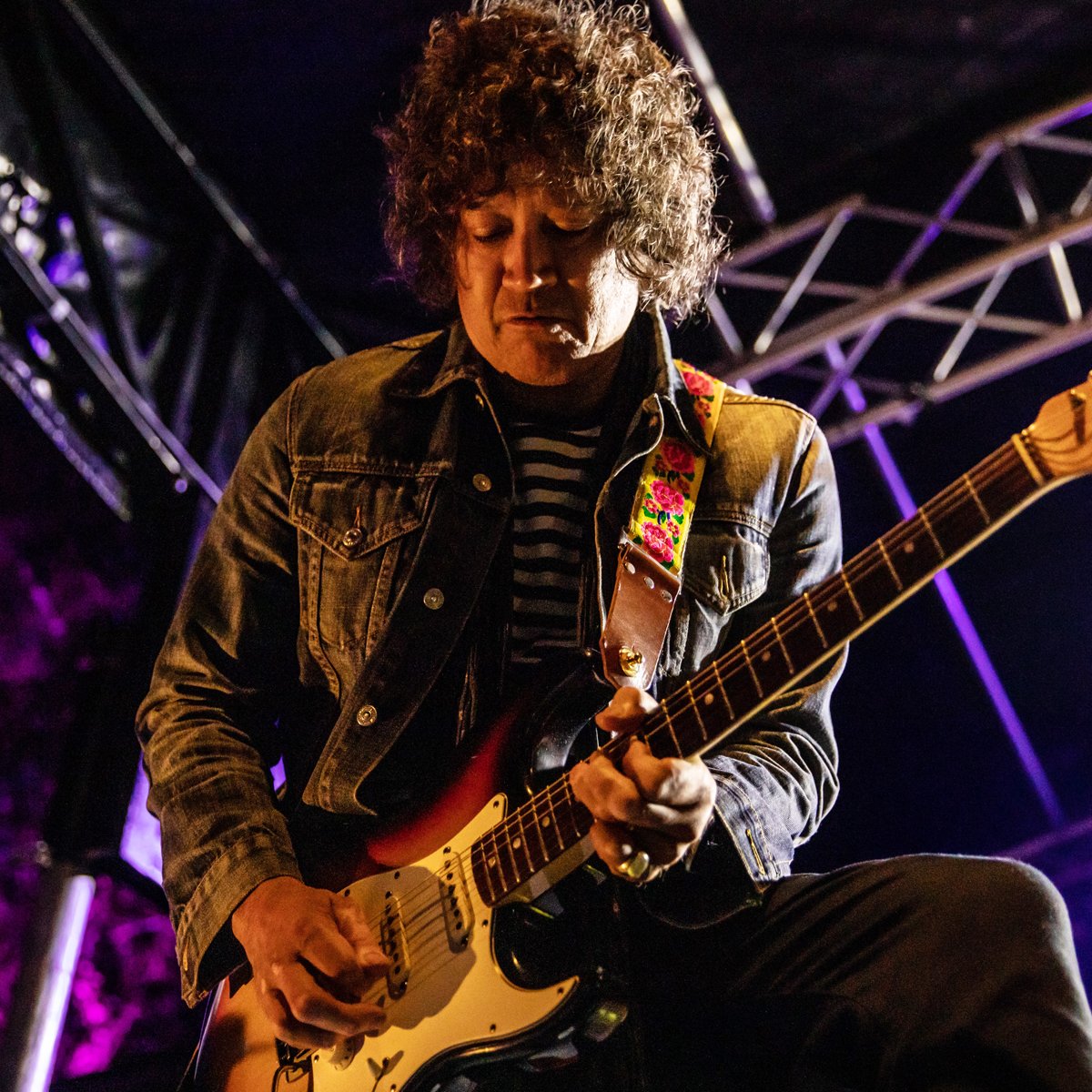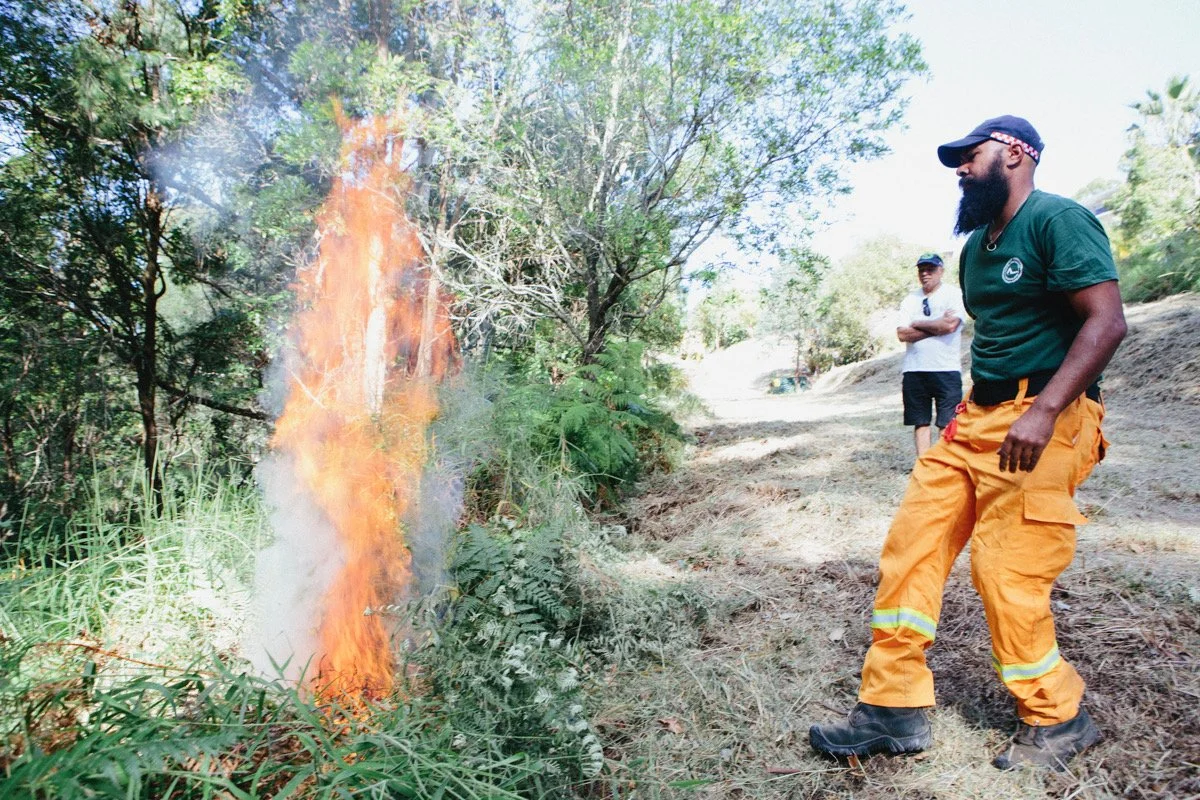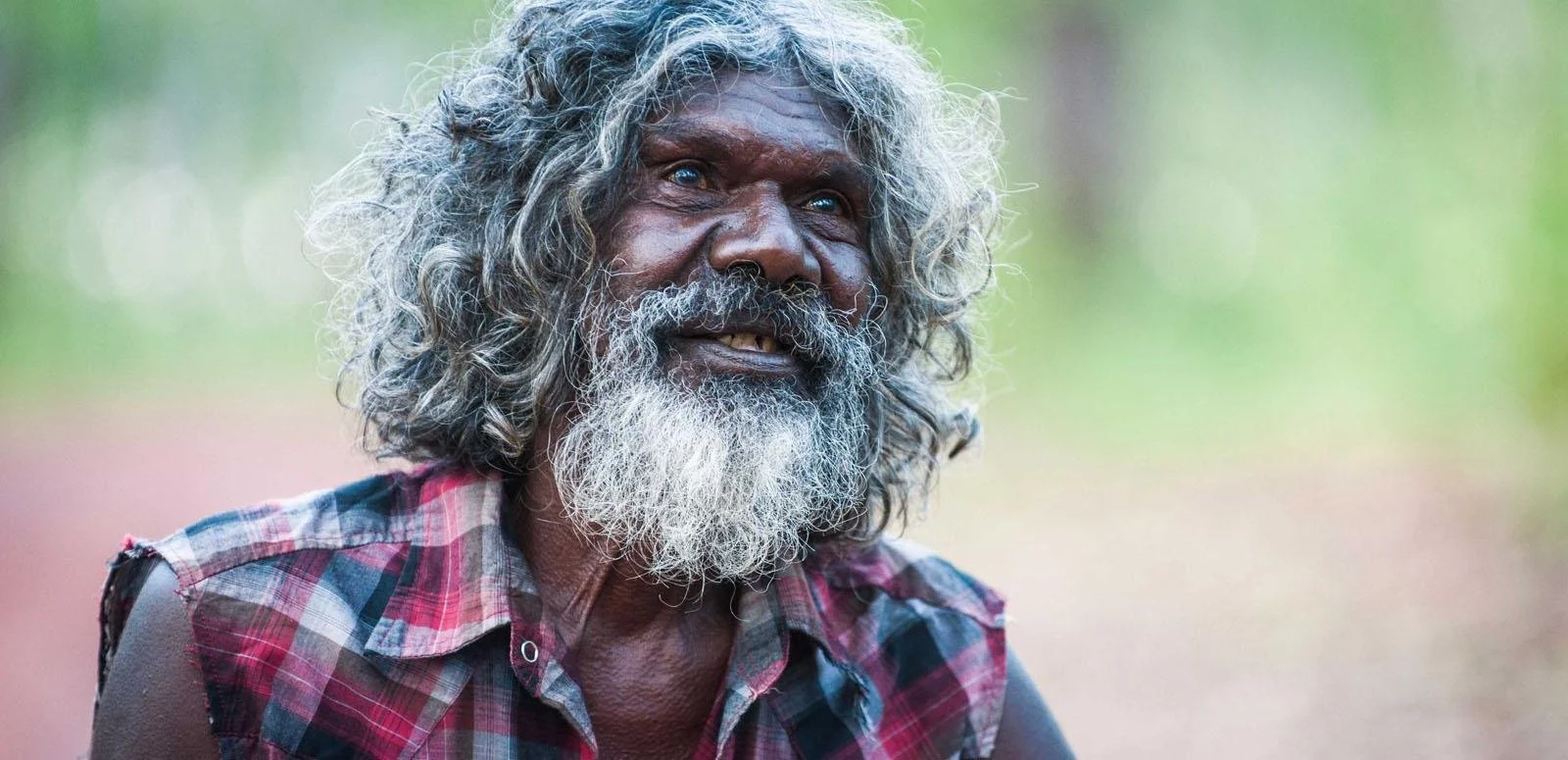DEBUT ALBUM
“As a Pitjantjatjara singer/songwriter Russell Smith has important stories to tell for all Australians to hear” - The late Uncle Archie Roach

“As a Pitjantjatjara singer/songwriter Russell Smith has important stories to tell for all Australians to hear” - The late Uncle Archie Roach

Pitjantjatjara man Russell ‘Rusty’ Smith’s music career has taken him around Australia and to all parts of the globe, working with some of the world’s most recognised musicians. Russell has played Didgeridoo/Yidaki with everyone from the late Uncle Archie Roach, Paul Kelly, Rodriguez and Guy Sebastian to Tommy Emmanuel, the Dandy Warhols and Jane’s Addiction. From the AFL Grand Final stage to the Lorient Festival in France, he has also had personal audiences with Nelson Mandela, Muhammad Ali and Richard Branson.
As a charismatic frontman, Russell aims to connect people with his music, and as the late Uncle Archie Roach stated, “As a Pitjantjatjara singer/ songwriter Russell Smith has important stories to tell for all Australians to hear.”
Russell founded Brolga Boys in 1996 and continues to lead the Indie First Nations Rock Band under the name BROLGA. He has brought together a significant band of skilled musicians to write and record his first album. Brolga members include Dave Mudie, Lee ‘Sonnyboy’ Morgan, Matty Vehl, Phil Ceberano, and Bones Sloane.
A debut album, a lifetime in the making and a chance to share his talents as a multi-instrumentalist and vocalist - a traditional Pitjantjatjara song man.
The 12 songs cover 30 years of ideas. “Goddess of the Sun”, “So Far Away” and “Forgotten Years”, were written in Melbourne in the 90’s and performed with his band Brolga Boys over many years.
“Heart of the Matter” acknowledges sophisticated First Nations land management and traditional burn knowledge and was written in 2021 after a traditional burn conducted with the Tamborine Mountain Rural Fire Brigade. Russell captured a photo of an old Traditional man in the flames of the fire, with Firesticks Traditional Burns teacher, Leeton Lee and Traditional Owner Uncle Steve Watson looking on.
“Long Way from Home” was written after the passing of Indigenous acting great David Dhalatnghu Gulpilil in 2022.
“One Song” is a cover of the late Uncle Archie Roach’s last ever recording, a poignant tribute to a lost elder Russell had toured the world with. It was one of the most important songs that Uncle Archie wrote.
“Always” was co-written with Melbourne musician Matty Vehl and released in 2022 and is about the history of Aboriginal people. It is written in a very subtle way, and in a very beautiful way.
The song “Conversation” is also about change: about the up-and-coming Indigenous youth who are going to make a positive change in this country. This is both Indigenous and non-Indigenous young people who will make this positive change.
“Wishing Tree” is a song about an Aboriginal grandmother guiding her granddaughter through a loss of her connection to Country
“My Head is Full of Dreams” is about Russell connecting to his spirituality and connecting to his culture. This was inspired by the band 1927.
For “Trilogy” Russell took inspiration from Stevie Wright from the Easy Beats. It inspired him to write this song in his own unique Aboriginal way. Russell’s attempt of Part 1, Part 2, Part 3 is about the History of this country, and it builds up to a good rock track in the end.
Brolga is an Indie First Nations Rock Band with a new and important voice or as Russell calls it...“the new ancient sound of Australia”.
Produced by Scott Whatman, & Russell Smith with Mastering by Tony Mantz aka Jack the Bear.
Russell will be inducted into the South Australian Music Hall of Fame in November 2023 alongside Paul Kelly.

Produced by Scott Whatman and Russell Smith
Engineered by Scott Whatman
Recorded at The Recording Room Burleigh Heads
Additional Recording by Craig Pilkington at Audrey Studios
Mastered by Jack the Bear Deluxe Audio
Album design by BENCU
Photography Ashley Oostdyck
Management Ben Cunningham
BAND
Russell Smith Lead Vocals, Didgeridoo/Yidaki, 12 String & 6 String Electric Guitars, Acoustic Guitar
Dave Mudie Drums and percussion
Matty Vehl Synthesizer, Piano, Hammond Organ
Lee Morgan Lead Guitar
Phil Ceberano Lead Guitar
Bones Sloane Bass Guitar
CONTRIBUTIONS
Lead Guitar: Ashley Naylor and Scott Whatman Backing Vocals: Andy Sorenson, Beckii O’Conner, Barb Prestia, Kelsey Iris, Callum and Jackson McPartlane and Scott Whatman Mandolin: Lachlan Church Synthesizer and piano: Andy Sorenson Guest voice: Derek Guille
This recording was made possible through the love and support of my family Anthea Edmunds, Wyntah-Lily Edmunds Smith, Bailey Edmunds Smith. Respect and thank you - Rusty xx
Many Thanks: Australia Council for the Arts, Ben James (original Brolga), Jill Shelton, Gerry Terati Lyons aka GMAN 3KND, First Nation Artists, Glenn Skuthorpe, Vonda Last, Nancy Bates, Sonia Urbanowski, Benjamin Barker, Grant Paulson, Christine Urbanowski, Anna Strzelecki, Stuart Rintoul, Karen Harbutt, Derek Guille, Umeewarra Media, Umeewarra Mission family, Dre Ngatokaruo, Jason Ngatokaruo, Lavene McKenzie, Cat Beaton, Gayle Hull Mather, Linda Ritchie, The Haystack Mountain Hermits, Dane Sharp, Blind Corners, Robert Bull, Andy Mullins and Sand Hill Road Group.
In Memory of the Late Archie Roach
This project has been assisted by the Australian Government through the Australia Council, its arts funding and advisory body

ALBUM ART
12” Vinyl Cover and back cover

12” Inner sleeve

Record labels


Russell ‘Rusty’ Smith
Pitjantjatjara
LEAD VOCALS, 6 & 12 STRING ELECTRIC, ACOUSTIC GUITAR, DIDGERIDOO/YIDAKI

Dave Mudie
Castlemaine / Dja Dja Wurrung Country
DRUMS
(Courtney Barnett, Super American Eagle, LA Mood)

Matty Vehl
Melbourne / Naarm
SYNTHESIZER, PIANO, HAMMOND ORGAN
(VEHL, Cool Explosion, Bombay Royale)

Phil Ceberano
Melbourne / Naarm
LEAD GUITAR
(Kate Ceberano, Russell Robertson and BigFoot)

Lee ‘Sonnyboy’ Morgan
Gunditjmara
LEAD GUITAR
(Archie Roach, Shane Howard, Neil Murray, Jarrah)

Bones Sloane
Castlemaine / Dja Dja Wurrung Country
BASS GUITAR
(Courtney Barnett)
Insights of each song by Russell Smith
An instrumental track that pays homage to initiated Aboriginal men. Strong, energetic and powerful, it gives all the band a solo and is probably our signature song.

WATI single cover. Will be the 2nd single released.
“Always Was Always Will Be” has been at the forefront for Aboriginal people for a very long time, and the song ‘Always’ is my way of writing about the tyranny of colonisation in Australia, today. I wrote this song with Matty Vehl about the history of Aboriginal people but in a very subtle way, and in a very beautiful way.
When we wrote the song, we talk about how we see the change in Australia. This song is about how two different people view the world and trying to make change for the better.
This song is about history of Australia between First Nations and White Australia. This is more of an Anthem of two friends who are trying to right the wrongs of history. I have known Matty Vehl over 20 years plus and he is a Brolga member and a very good friend, and we have been writing songs together.

‘Always’ has been released as a single on all streaming platforms globally
I wrote this song ‘Conversation’ thinking about the First Nations female and male soldiers that went to war and fought for their freedom. When they came home but nothing has changed for them.
As discussed on the AITSIS website:
“Despite discrimination and exclusion, thousands of Aboriginal and Torres Strait Islander peoples have served in the Australian Defence Forces since the 1860s and possibly earlier.
Aboriginal and Torres Strait Islander peoples have served on the ground, in the air, at sea and on horseback. Their time in the Defence Forces was, for many, their first time being treated as equals. Unfortunately, when they returned to civilian life, they returned to discrimination and prejudice. Many found that they were ejected from hotels and public places or denied employment and the benefits offered to other returning service personnel.”
(https://aiatsis.gov.au/explore/serving-their-country)
This song is also about change – talking about the next generation of colour – up and coming Indigenous youth. These upcoming young people will be the ones who are going to make a positive change in this country. This is both Indigenous and non-Indigenous young people making this positive change.
It is also quite timely – with the reality of the Voice and the conversation with the Voice to Parliament and the Referendum, it is about the importance of everyone’s voice and everybody having a conversation.
I wrote ‘Forgotten years’ when I was young, in the 90’s. Bands like Rage against the Machine and Pearl Jam were at the forefront of alternative music, in a different space, and place, they were the next big things - which they were.
This is probably my most political song. It is about the former Prime Minister John Howard, who at the time was steeped in revenge and hurtful to Aboriginal politics. It is about the harsh history of the country and a Prime Minister who refused to act for positive impact for Aboriginal communities.
Nobody wanted to talk about Aboriginal policies or Aboriginal politics – it didn’t equate to votes. I thought I could write something - I was angry at the injustice and I want to channel my anger into something non-violent but use music as an alternative avenue. This song is about how we have been treated as Indigenous people.
This song is about Aboriginal connection to the sky and how stories were told. That connection tells us where we are going, it’s about belonging, and land and sea and sky. The Milky Way is a pathway – it’s a connection to Dreaming stories, and the Seven Sisters. I was listening to a lot of Stone Roses and got inspired to write something.
It’s a beautiful song.
Another of my songs, ‘Heart of the Matter’ is about being on-Country undertaking a traditional burn, seeing an old Traditional man in the flames of the fire, and capturing that image in a photograph. Traditional burns are totally different from western burns, it is about reading the land and the country. That day we did a traditional burn with one of our younger traditional burners here. Leeton Lee wears two hats, one as a Rural Fire Fighter, and the other is a Firesticks Traditional Burns teacher. When I saw the photo I had taken, I knew I needed to write about the old Traditional man in the image with the Traditional Owner, Uncle Steve Watson standing by, beside First Nations Fire Fighter Leeton Lee. That is where the song ‘Heart of the Matter’ was created.
Indigenous land management and cultural burning is incredibly sophisticated and complex cultural knowledge, “the revival of cultural burning practices and improved ‘reading’ of country could help restore our land. Fire is an important part of a wholistic approach to the environment, and when burning is done in a carefully considered manner, this ensures proper land care and healing.” (Victor Steffensen, Fire Country, 2020).
The climate crisis must also look to Indigenous voices and through an Indigenous lens. Some of the songs for the new album I have had in my head for many years. They are special to me as an Aboriginal person, and I think they will be special to others too, both Indigenous and non-Indigenous.

‘My Head is full of Dreams’ is a personal song, I am trying to establish who I am. My head is full of dreams, it talks of my Spiritual connection. It is talking about who I am as a person, When I talk of the moon getting low – that is talking about not being confident enough, but over time building that confidence. It is about connecting to my spirituality and connecting to my culture.
This was inspired by the band 1927.
‘Long Way from Home’ is about a Famous First Nations actor who has passed, who I respected.
He was my hero, who I grew up watching. He has been in many films; he was in Storm Boy. I got to watch him in France, in Charlie’s Country, in subtitles in French.
I was really upset to hear of his passing. I wrote a song and recorded a story. I collaborated with Scott Whatman, we listened to the Saints. His life was most important, and he was an amazing actor.

David Gulpilil - whose passing inspired ‘Long Way from Home’
So Far Away talks about people that you love who have passed that leave a mark.
It is a ballad. It is about the depths of sorrow and friends who decided to check out. It leaves friends and loved ones with unanswered questions.
One song is personal for me as I got the opportunity to work with late Uncle Archie Roach.
This was his last song; it was recorded around his kitchen table.
Every time on tour with him, it made me think about – everyone has one song – and it made me think what is that one song. He wrote it when he was not feeling 100%, he knew he was going. It was one of the most important songs that he wrote. The iconic songs, Took the Children Away, Charcoal Lane, Native Born, Walking into Doors. This is one of the last iconic songs he ever wrote.
What is your one song?

Uncle Archie Roach with Russell Smith
I took inspiration from Stevie Wright from the Easy Beats. It inspired me to write this song in my own unique Aboriginal way. Easy Beats were a hardworking band in Australia in the 60’s. 60s and 70s inspired me as a musician. Eric Clapton. Led Zeppelin. The Who. Those guys inspired me. My attempt of Part 1, Part 2, Part 3 is about the History of this country, and it builds up to a good rock track in the end.
Part 1 – First Nation how we cared for land. Since time began Aboriginal people were here, this land had its own flourishing growth in terms of trade, and traditional boundaries, and custodians who cared for the land, and that is how important it was. Aboriginal people knew how to look after their country for thousands of years.
Part 2 – The Ghost of White Australia, that is when the white settlers came in. It is a hard one, they came, they pillaged this country, took the richest part of this country, took the wealth of the land. So, it is about the history of non-Aboriginal people on this country and colonisation.
Part 3 – Black Rain is a metaphor for Aboriginal people taking back ownership of their own destiny, of their own country, with culture and language. It is about empowerment, ensuring connection to Country. And it is about Hope.
One of my songs ‘Wishing Tree’ is about an Aboriginal grandmother guiding her granddaughter through a loss of her connection to Country. The importance of First Nations women’s perspective is discussed in Wiyi Yani U Thangani Report, Women’s Voices, Securing Our Rights, Securing Our Future: “[Aboriginal women] are fighting new challenges of climate change and are continuing to strive for our right and recognition of ownership of country. More must be done to support our women in this work”.
“Women intersect with country in many dynamic ways. Women are active in rebuilding and redefining their connection to country. They are innovating to protect our country and sustain our cultural knowledge. Reconnection and being supported to access country and fulfill our custodial obligations is fundamental to achieving racial, social and ecological justice and equity for Aboriginal and Torres Strait Islander peoples.”
Wishing Tree is a metaphor for strong Aboriginal grandmothers, mothers, daughters, and children.
Edit v1 WIP
Click to enlarge
Click to enlarge